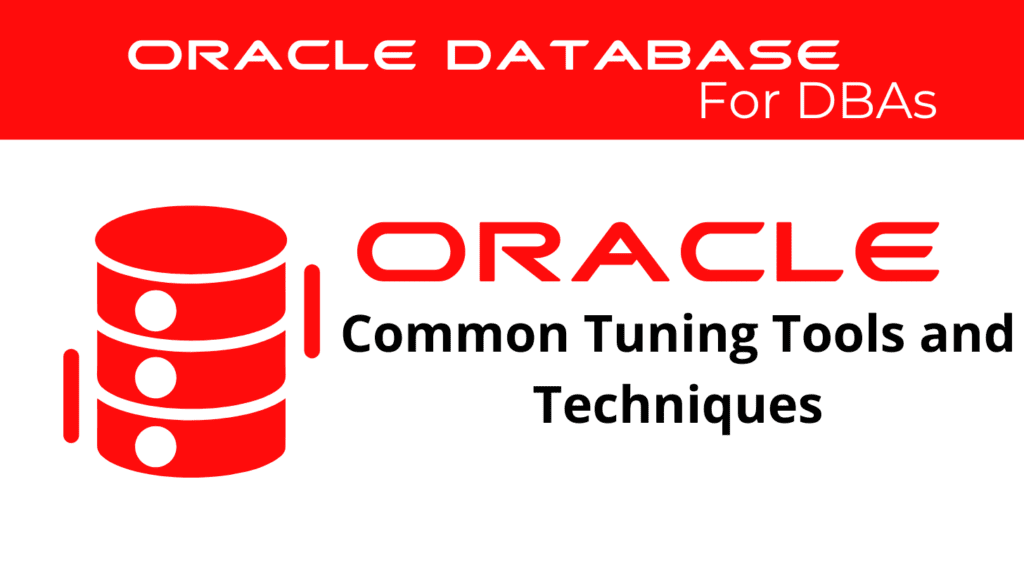
Efficient performance tuning is critical for maintaining optimal functionality in Oracle Databases. This blog will explore common tuning tools and techniques, focusing on Oracle Enterprise Manager, AWR, and ADDM. Additionally, we will discuss optimization strategies such as indexing, partitioning, and query tuning. By understanding these tools and techniques, you can ensure that your Oracle Database performs at its best across various industries and sectors. Database Optimization Techniques is very important for DBAs!
Oracle Database Tuning Tools
Oracle Database tuning tools are essential for identifying and resolving performance issues. Key tools include Oracle Enterprise Manager, Automatic Workload Repository (AWR), and Automatic Database Diagnostic Monitor (ADDM).
Oracle Enterprise Manager provides a comprehensive suite of tools for managing and monitoring Oracle Databases. It helps database administrators (DBAs) perform performance diagnostics, track database metrics, and implement tuning recommendations.
AWR is a repository that collects, processes, and maintains performance data used for database tuning. It provides detailed reports that help DBAs identify performance bottlenecks and trends over time.
ADDM analyzes the data collected by AWR to provide actionable recommendations for improving database performance. It focuses on areas such as resource bottlenecks, poorly performing SQL statements, and configuration issues.
Using these tools, DBAs can proactively manage and tune their databases to ensure optimal performance.
Oracle Database Optimization Techniques
Optimizing Oracle Databases involves several key techniques, including indexing, partitioning, and query tuning.
Indexing is a method used to improve the speed of data retrieval operations. By creating indexes on frequently queried columns, DBAs can significantly reduce the time it takes to access data. However, it is essential to balance the number of indexes, as too many can negatively impact database performance.
Partitioning helps manage large tables by dividing them into smaller, more manageable pieces. This technique improves query performance and simplifies maintenance tasks. Partitioning strategies can be based on various criteria, such as range, list, or hash.
Query tuning involves optimizing SQL queries to ensure they run efficiently. This includes rewriting queries for better performance, using hints to influence the execution plan, and ensuring that queries are properly indexed. Understanding the execution plan of queries helps identify and resolve performance bottlenecks.
By implementing these optimization techniques, DBAs can ensure that their Oracle Databases operate efficiently and effectively.
Oracle Database Tuning Tools – Advanced Tuning Strategies
In addition to basic tuning techniques, advanced strategies can further enhance Oracle Database performance. These include using Oracle Real Application Clusters (RAC) and leveraging in-memory processing.
Oracle RAC allows multiple instances of Oracle Database to run on different servers, providing high availability and scalability. This ensures continuous availability and load balancing, making it suitable for mission-critical applications.
In-memory processing involves storing data in memory rather than on disk, significantly improving query performance. Oracle’s in-memory option allows DBAs to perform real-time analytics and accelerate transaction processing.
Performance tuning is an ongoing process. Regular monitoring and proactive tuning are essential to prevent performance issues and maintain optimal database performance. By staying informed about the latest tuning strategies and tools, DBAs can ensure their Oracle Databases are always performing at their best.
See more on Oracle’s website!
Conclusion
In conclusion, performance tuning is crucial for maintaining efficient and effective Oracle Databases. By leveraging tools like Oracle Enterprise Manager, AWR, and ADDM, and implementing optimization techniques such as indexing, partitioning, and query tuning, DBAs can ensure optimal performance. Advanced strategies like Oracle RAC and in-memory processing further enhance database efficiency. Regular monitoring and proactive tuning are essential to prevent performance issues and maintain optimal performance, ultimately leading to better business outcomes and user satisfaction.
Be Oracle Performance Management and Tuning certified, this world is full of opportunities for qualified DBAs!
RELATED POSTS
Performance Management and Tuning:





